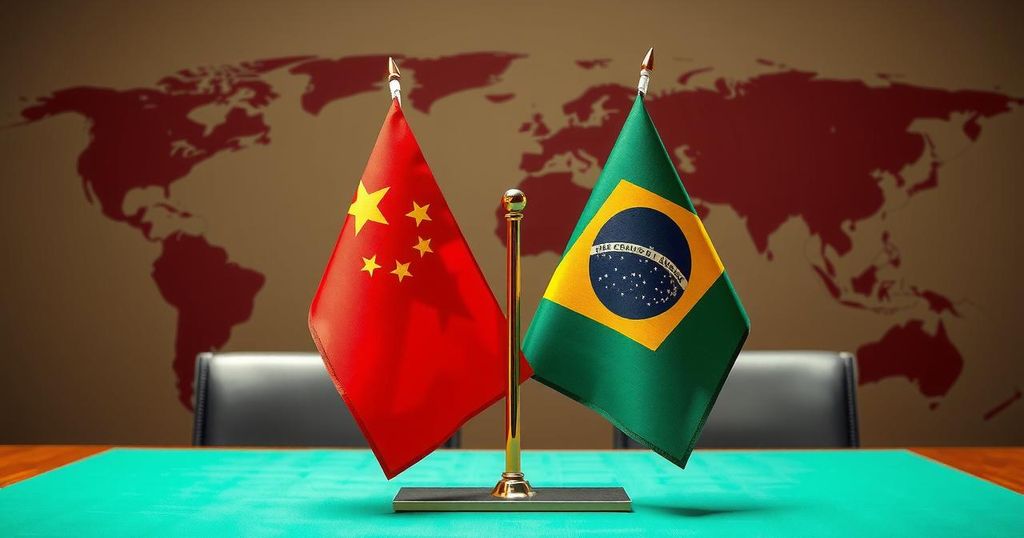China and Brazil’s Foreign Ministers Discuss Multilateralism and Ukraine Crisis

On Monday, China’s and Brazil’s foreign ministers met in Beijing, reaffirming their commitment to multilateralism and discussing the Ukraine crisis. They advocated for dialogue between Russia and Ukraine, indicating a trend toward greater cooperation in international relations.
In a significant meeting held in Beijing, China’s Foreign Minister Wang Yi and Brazil’s Foreign Minister Mauro Vieira reaffirmed their commitment to upholding multilateralism and international regulations that are recognized globally. This meeting took place on Monday, and the discussions were described as constructive and aimed at fostering stronger diplomatic ties between the two nations.
Additionally, the two diplomats delved into the ongoing crisis in Ukraine. They expressed a shared view advocating for a resolution through direct dialogue and negotiations between Russia and Ukraine. This cooperation reflects a broader strategy by both countries to navigate global challenges jointly, with China’s foreign ministry emphasizing the importance of diplomatic solutions.
The engagement comes at a time of increasing geopolitical tensions and highlights Brazil’s and China’s positioning on the international stage. With both countries valuing multilateralism, they demonstrated their desire to address complex issues through collaborative discussions, rather than unilateral actions.
As both nations seek to enhance their global influence, this meeting could signal a strengthening partnership between them. Observers will be keen to see how these discussions translate into actions that impact the broader international community.
The meeting between China’s and Brazil’s foreign ministers in Beijing underscores their shared commitment to multilateralism and international cooperation. By addressing the Ukraine crisis through dialogue, Wang Yi and Mauro Vieira are positioning their countries as significant players in global diplomacy. Their partnership reflects an ongoing trend of nations seeking collaborative solutions to international challenges, potentially reshaping the geopolitical landscape.
Original Source: www.jpost.com








